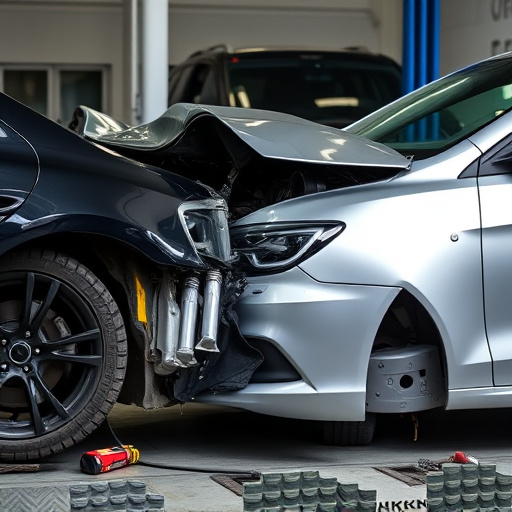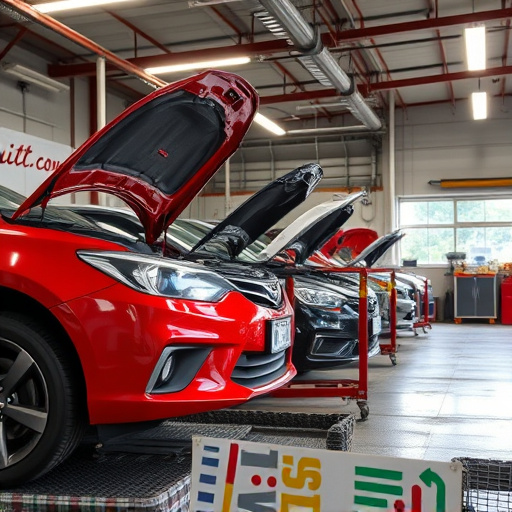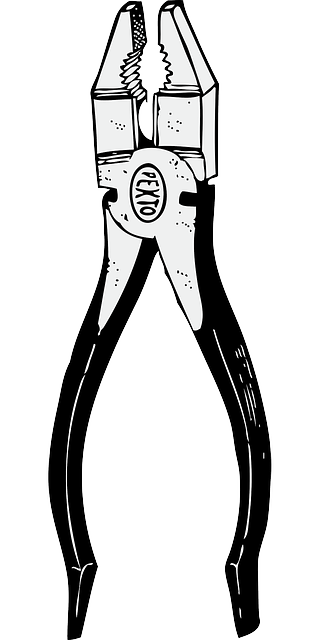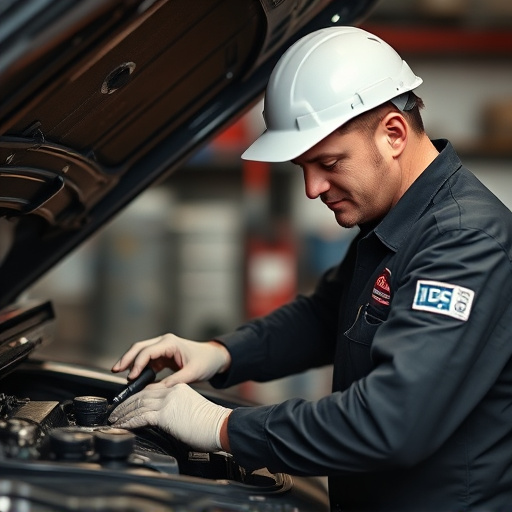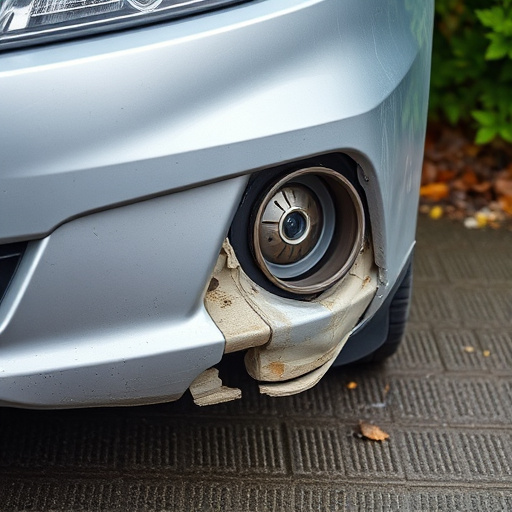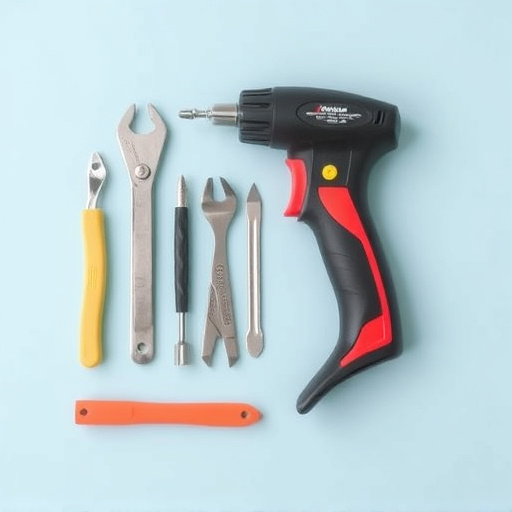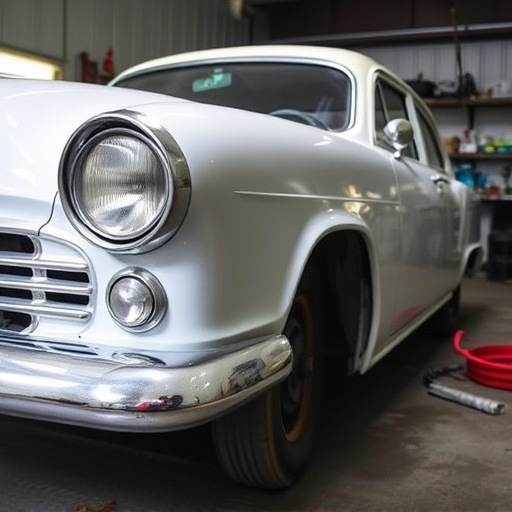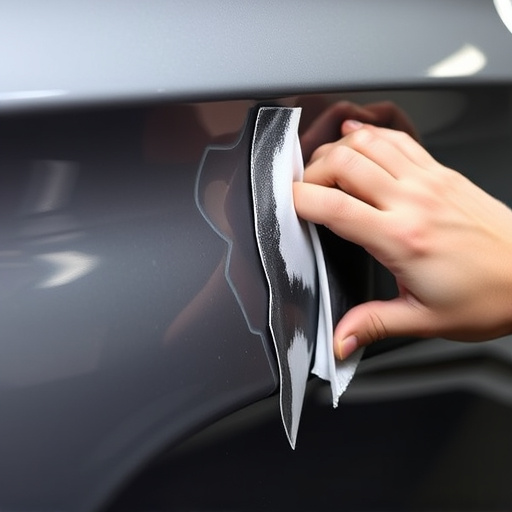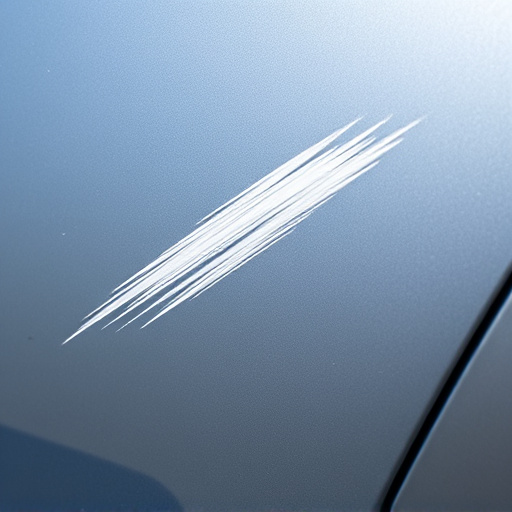Mercedes radar recalibration is crucial for maintaining Adaptive Cruise Control (ACC) accuracy and safety. Over time, environmental factors or damage can disrupt sensor performance. The process involves inspection and calibration with specialized tools to optimize speed detection and ACC control, ensuring Mercedes' advanced technology functions optimally. Regular professional checks and tire services are essential to guarantee ACC precision in diverse driving conditions, enhancing overall vehicle safety and performance.
Mercedes radar recalibration is a critical process that ensures the accuracy and reliability of the vehicle’s adaptive cruise control (ACC) system. This advanced technology uses radar sensors to maintain a safe distance from other cars, enhancing driving comfort and safety. Understanding the recalibration process and its benefits is crucial for maximizing ACC performance. By following best practices for regular maintenance, drivers can ensure optimal system functionality.
- Understanding Mercedes Radar Recalibration Process
- Benefits of Accurate Adaptive Cruise Control
- Best Practices for Effective Radar Calibration Maintenance
Understanding Mercedes Radar Recalibration Process
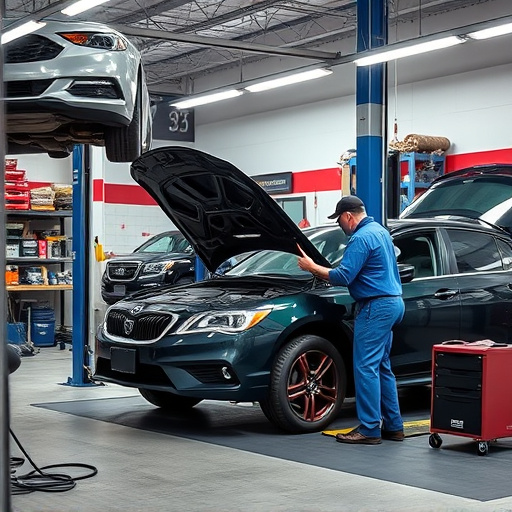
Mercedes radar recalibration is a critical process that ensures the precision and safety of their Adaptive Cruise Control (ACC) systems. It involves fine-tuning the vehicle’s radar sensor, which plays a pivotal role in maintaining a safe distance from other cars on the road. This recalibration is necessary due to potential disruptions caused by environmental factors, age, or damage to the radar unit over time. By recalibrating the Mercedes radar, technicians can optimize its performance, ensuring accurate speed detection and precise control of the ACC features.
The process typically includes several steps: first, the vehicle undergoes a thorough inspection to identify any issues with the radar system. Then, specialized tools are used to calibrate the sensor, adjusting its settings for optimal accuracy. It’s akin to fine-tuning an instrument to ensure it plays in tune—a crucial step in maintaining the safety and efficiency of Mercedes’ cutting-edge automotive technology, much like how vehicle repair services and restoration experts cater to various aspects of a car’s health and appearance, ensuring it functions at its best.
Benefits of Accurate Adaptive Cruise Control

The benefits of accurate Adaptive Cruise Control (ACC) are manifold, especially for drivers on long journeys or in congested traffic. ACC uses radar technology to maintain a safe distance between your vehicle and the one ahead, automatically adjusting speed as needed. Precise Mercedes radar recalibration ensures this system functions optimally, leading to enhanced safety features. By keeping a consistent and accurate distance, ACC reduces the risk of rear-end collisions, minimizes stress during stop-and-go traffic, and allows drivers to relax and focus on other aspects of the drive, such as enjoying the scenery or attending to passengers.
Furthermore, accurate ACC contributes to a smoother driving experience. It prevents sudden braking and accelerations, which can be jarring for both driver and passengers. This technology also plays a crucial role in collision damage repair by reducing the impact of potential accidents, making it an essential component of any vehicle body shop’s services. In the event of a fender bender or bumper repair, Mercedes radar recalibration ensures that the ACC system is restored to its original precision, enhancing overall vehicle safety and performance.
Best Practices for Effective Radar Calibration Maintenance

Maintaining accurate Mercedes radar recalibration is paramount for ensuring the safety and efficiency of adaptive cruise control (ACC) systems. Best practices involve regular, professional checks to detect and correct any drifts in sensor readings. An auto repair shop equipped with specialized tools can perform thorough tire services, including adjusting the radar’s frequency and gain settings, which are crucial for optimal performance. By consistently calibrating, an auto repair shop can ensure that the ACC responds accurately to road conditions, maintaining a safe distance from other vehicles.
Moreover, proper Mercedes radar recalibration requires consideration of environmental factors. Extreme temperatures or weather conditions can affect sensor accuracy. An experienced mechanic will account for these variables during calibration, ensuring that the ACC functions reliably in various driving scenarios, including heavy rain or snow. Regular maintenance, combined with prompt repairs for any fender damage or tire-related issues, contributes to keeping your vehicle’s safety systems at peak performance.
Mercedes radar recalibration is a vital process that ensures the accuracy and reliability of the vehicle’s adaptive cruise control (ACC) system. By regularly performing this maintenance, drivers can experience enhanced safety features, smoother driving, and improved overall performance. Understanding the benefits and implementing best practices for calibration will keep your Mercedes’ ACC running optimally, providing peace of mind on the road.

